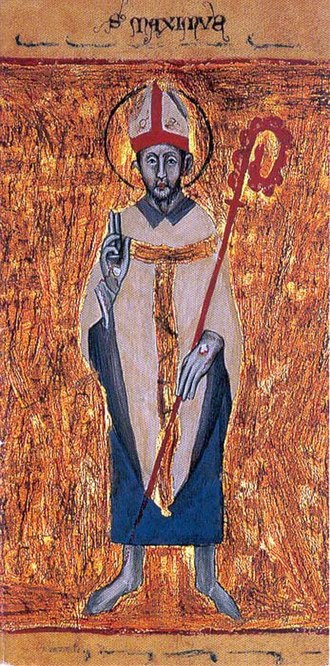Rev. José Mario O. Mandía
The next Church Father we are going to study is a disciple of Saints Eusebius of Vercelli and Ambrose of Milan, both of whom we have just studied. This disciple, named Maximus, became the first bishop of Turin. Some authors establish his birth around 380. What we are certain of is that he became Bishop of Turin in 398. Little is known about his life, but he left behind a collection of more than a hundred sermons and six treatises. He died in 465.
Barbarian incursions threatened Turin at the time that Maximus was bishop. There were many soldiers and refugees in the city. The rich people, however, were not so willing to give them help. This is why Saint Maximus spoke openly against their attitude. Pope Benedict XVI comments: “Maximus’ interventions in the face of this situation testify to his commitment to respond to the civil degradation and disintegration.” His preaching addressed “a chosen nucleus of the Christian community of Turin, consisting of rich landowners who had property in the Turinese countryside and a house in the city. This was a clear-sighted pastoral decision by the Bishop, who saw this type of preaching as the most effective way to preserve and strengthen his own ties with the people” (General Audience, 31 October 2007).
Benedict XVI specifically quotes Sermon 17 where Maximus lamented: “No one thinks about the needs of others. In fact, not only do many Christians not share their own possessions but they also rob others of theirs” (Sermon 17, 2-3).
The Holy Father comments: “Without being too obvious, Maximus thus managed to preach a profound relationship between a Christian’s and a citizen’s duties. In his eyes, living a Christian life also meant assuming civil commitments. Vice-versa, every Christian who, ‘despite being able to live by his own work, seizes the booty of others with the ferocity of wild beasts’; who ‘tricks his neighbor, who tries every day to nibble away at the boundaries of others, to gain possession of their produce,’ does not compare to a fox biting off the heads of chickens but rather to a wolf savaging pigs’ (Sermon 41, 4)” (General Audience, 31 October 2007).
The barbarian incursions led to the collapse of the civil authority of the Roman Empire and left Maximus as the only person with authority to exercise true control over the city. This led him to encourage the faithful to fulfill not only their religious duties but also their civil obligations, such as paying taxes. He taught them that being good Christians includes being good citizens as well.
As the Catechism of the Catholic Church (no 2239) teaches: “It is the duty of citizens to contribute along with the civil authorities to the good of society in a spirit of truth, justice, solidarity, and freedom. The love and service of one’s country follow from the duty of gratitude and belong to the order of charity. Submission to legitimate authorities and service of the common good require citizens to fulfill their roles in the life of the political community.”
Pope Benedict concludes by pointing out the need of Christians to live unity of life. “I would like to recall the words of the Pastoral Constitution Gaudium et Spes: consistency between faith and conduct, between Gospel and culture. The Council exhorts the faithful ‘to perform their duties faithfully in the spirit of the Gospel. It is a mistake to think that, because we have here no lasting city, but seek the city which is to come, we are entitled to shirk our earthly responsibilities; this is to forget that by our faith we are bound all the more to fulfill these responsibilities according to the vocation of each one’ (n. 43). In following the Magisterium of St Maximus and of many other Fathers, let us make our own the Council’s desire that the faithful may be increasingly anxious to ‘carry out their earthly activity in such a way as to integrate human, domestic, professional, scientific and technical enterprises with religious values, under whose supreme direction all things are ordered to the glory of God’ (ibid.) and thus for humanity’s good” (General Audience, 31 October 2007).


 Follow
Follow


